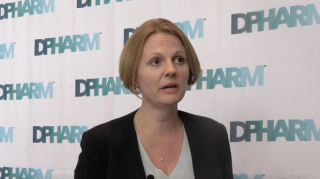
Patient Participation
Latest News
Latest Videos

More News

The responsibility of increasing diversity falls on every stakeholder in the clinical trial value chain.

Self-determined eligibility and the influence of clinical care challenge this flawed figure.

Examining the behaviors of clinical trial stakeholders to better understand challenges in patient participation.
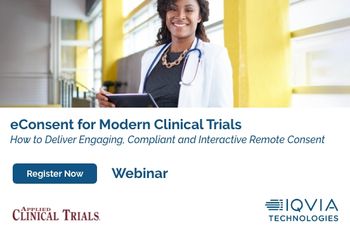
eConsent for Modern Clinical Trials: How to Deliver Engaging, Compliant and Interactive Remote Consent
Webinar Date/Time: Tuesday, March 21st, 2023 at 9am EDT | 6am PDT | 1pm GMT | 2pm CET

Webinar Date/Time: Thu, Mar 2, 2023 1:00 PM EST

Joan Chambers, senior director of marketing, communication & education for CISCRP reveals what innovations are coming up at the SCOPE 2023 conference in Orlando, FL.

Joan Chambers, senior director of marketing, communication & education for CISCRP comments on current CISCRP happenings at the SCOPE 2023 conference in Orlando, FL.

Len Rosenberg, head of clinical operations at Beat AML, reflects on the issues that come with finding patients durable treatment plans.

Len Rosenberg, head of clinical operations at Beat AML, comments on how his company not helps to advance the sector, but integrates new ways to conduct clinical trials.

Webinar Date/Time: Thu, Mar 16, 2023 11:00 AM EDT

Webinar Date/Time: Thursday, March 30th, 2023 at 10am EDT|7am PDT|3pm BST|4pm CEST
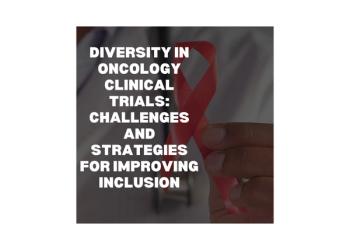
Challenges and strategies for improving representation.
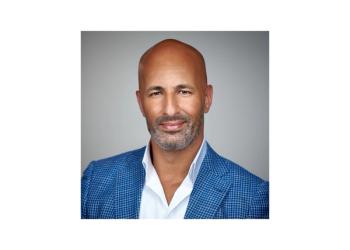
Buy-in from industry stakeholders pivotal to ensure bright future for the decentralized approach.

Rich Christie, MD, PhD, Chief Medical Officer at AiCure discusses the use of the company's technology in a clinical trial for PTSD.
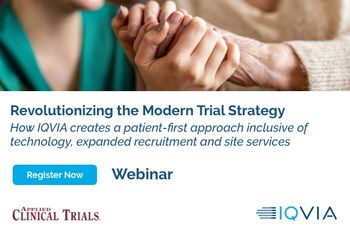
Webinar Date/Time: Tuesday, February 14th, 2023 at 10am EST|7am PST|3pm GMT|4pm CET

Webinar Date/Time: Tuesday, January 24th, 2023 at 11am EST|8am PST|4pm GMT|5pm CET

New technology is empowering medical professionals to better incorporate the voices of patients.

Webinar Date/Time: Tuesday, December 13, 2022 at 10am ET | 3pm GMT | 4pm CET
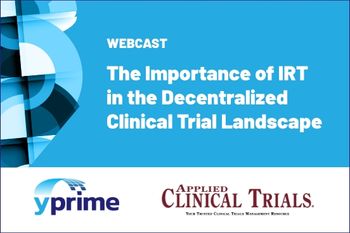
Webinar Date/Time: Wednesday, December 7th, 2022 at 11am EST | 8am PST | 4pm GMT | 5pm CET

Good scientific principles and practices are essential for maintaining quality data that patients can benefit from.

Integrated approaches can help enhance recruitment plans.

Insights from Bayer’s study review process showcases importance of incorporating feedback from a wider audience of stakeholders.

Increased outreach is necessary to combat poor recruitment and large focus on patients near study centers.

Decentralized trials provide promise for lowering barriers in participation, but industry must continue to be proactive in patient centricity.

Andrea Zobel, PhD, Senior Director of Personalized Supply Chain at AmerisourceBergen’s World Courier, and Graham Wylie, MBBS, Executive Chairman & Founder of the Medical Research Network (MRN), discuss the demand for DCTs, challenges surrounding them, and what their future holds.






